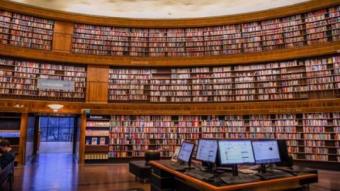
Back to top

Université de Corse
Avenue Jean Nicoli
20250Corte
France
Intervention d'Anne Garcia‐ Fernandez, Ingénieur de recherche au CNRS, UMR 5316 Litt&Arts ‐ Université de Grenoble
La présentation, en s'appuyant sur l'exemple de la plateforme TACT, montrera l'intérêt de considérer la phase de transcription des sources comme un projet en soi : définition des besoins, sélection du corpus, adéquation u schéma de transcription avec les objectifs scientifiques du projet, constitution d'une équipe et d'un protocole de travail... Partant du principe que ce projet de transcription est un sous‐projet d'un projet plus large, nous verrons l'importance de choisir un outil capable d'entrer dans un flux de traitement et donc capable de ré‐utiliser et d'être ré‐utilisé.
La plateforme TACT permet d’héberger et de mener à terme des projets de transcriptions. Les responsables de projets créent leur propre espace de transcription en l’adaptant à leurs besoins : modèle de transcription, structuration du corpus, public de transcripteurs, visualisation des transcriptions, flux de validation, etc. TACT a été conçue pour favoriser l’autonomie et la gestion des projets, de la création à l’export des données.